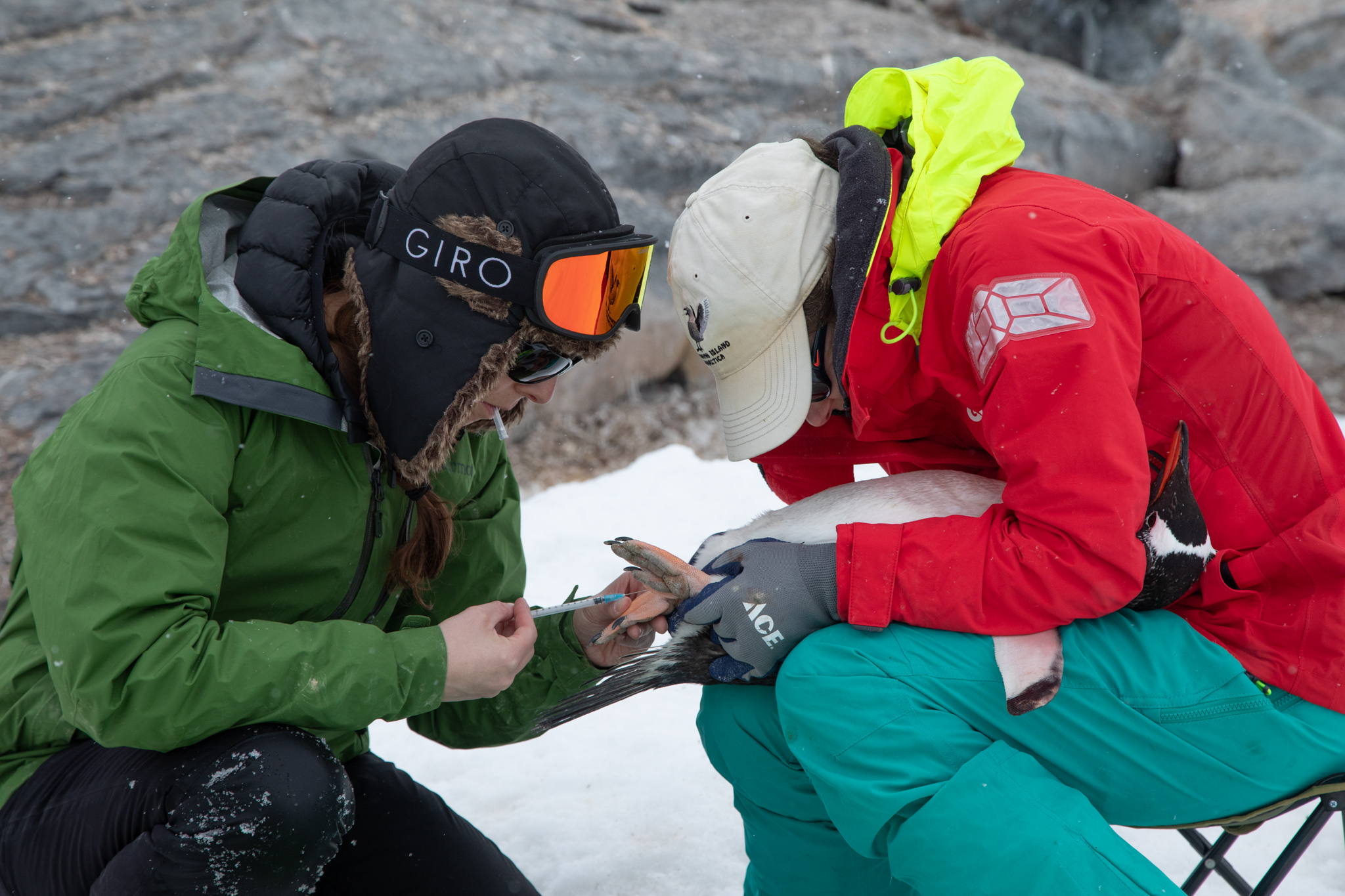Rachael Herman, 2020 NASA FINESST Recipient

STRIDE Fellow, Rachael Herman has been selected for a NASA Future Investigators in NASA Earth and Space Science and Technology (FINESST) Award.
Rachael’s research proposal focusing on gentoo penguins was one of 62 selected out of a pool of 789 total proposals (341 in Earth Science) and will provide substantial funding for the next three years.
Gentoo penguin populations in Antarctica have exploded under climate change and their range has expanded southward 60 km over just 13 years, an incredible feat for a colonial species considered both highly site faithful and pagophobic (ice-fearing). Gentoo penguins now occupy areas of the Antarctic Peninsula that are, by all available evidence, far too icy for them to survive the overwinter period. But recent camera trap data show that gentoo penguins remain resident at these southernmost colonies throughout the winter, defying expectations and highlighting both our patchy understanding of gentoo penguin life history and overwinter sea ice dynamics in the region. Through a novel integration of satellite imagery (Landsat) and unmanned aerial photography for population assessment, NASA-derived products for understanding fine-scale sea ice dynamics (Landsat, MODIS, ICESat, ICESat-2), and a landscape-scale mapping of gentoo penguin genomics, Rachael will investigate the precise mechanisms by which gentoo penguins, a climate change ‘winner’, are able to expand their range in response to warming conditions despite being highly site faithful and obligate colonialists. This research will provide a detailed case study in how a changing polar system drives changes in species ranges, and how this system will change in the future. Understanding cases such as this will improve our capacity for ecological forecasting, which is an area of growing interest within ecology.
Rachael is a graduate student from Ecology and Evolution and studies under the advisement of Professor Heather Lynch.
Photo: Rachael Herman and Heather Lynch collect a blood sample for genomics research.
